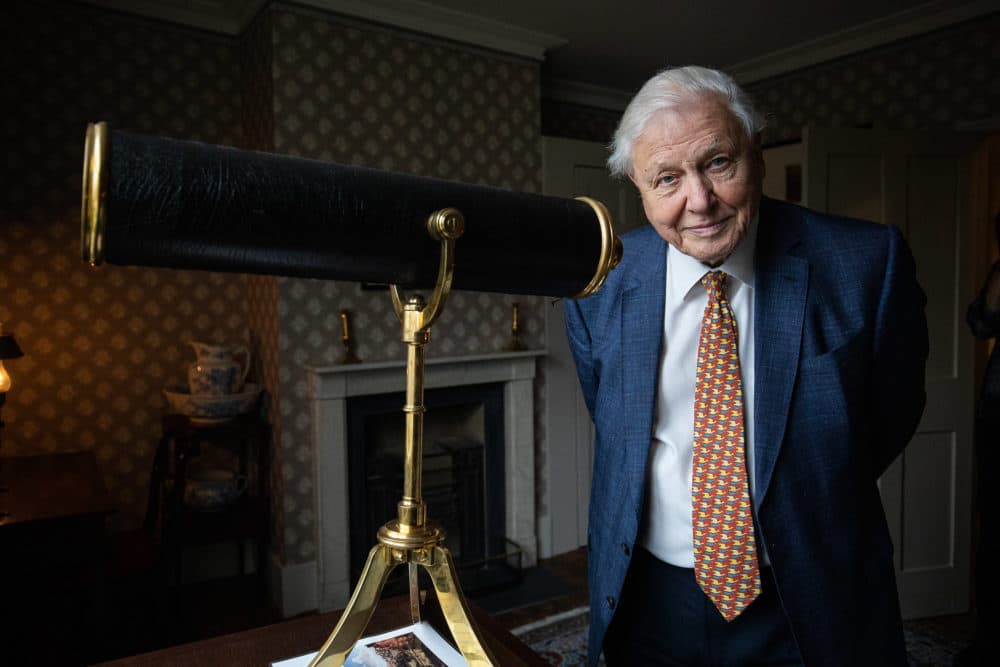Advertisement
David Attenborough Explains How Humans Jeopardize 'A Perfect Planet' For Life

For nearly six decades, Sir David Attenborough has been bringing us films that reveal the natural world in startling beauty and detail.
His latest work takes a sobering look at the state of our planet and our prospects for the future. The five-part documentary series on Discovery Plus, "A Perfect Planet," explores how weather, ocean currents, the sun and volcanoes have shaped the world we live in.
In the series, Attenborough makes the case that Earth, as far as we know it, is uniquely suited to sustain life. It’s the perfect planet.
“Well, in many ways, of course, it's self-defining, isn't it? We are here because the Earth is suitable and the Earth is suitable because we're here,” Attenborough says. “By examining the natural world in terms of the sunlight, the volcano, the seas, you are looking at it in a more fundamental way and seeing how we are dependent upon those and what extraordinary powers they are.”
The series also examines if we have upset the balance of forces that make the Earth so ideal for human life, says executive producer Alastair Fothergill. Recent natural disasters such as the ever-growing California wildfires and regular hurricanes along the East Coast could mean we have jeopardized the planet’s health.
“You have to question whether these are small blips or there is a genuine concern that we have upset the perfect planet,” Fothergill says. “And that is what we wanted to address in the series.”
Fothergill points to the production of carbon dioxide as a benchmark for answering that question.
“We now create more [carbon dioxide] in a year than all the volcanoes, 100 times more than all the volcanoes put together,” he says. “And if you look back at the history of our planet, there have been five great extinctions and all but the last one were basically created by too much [carbon dioxide].”
For Attenborough, dead coral reefs are the most striking visual evidence of climate change.
“That's a terrible, terrible sight since a living coral reef is, in my estimation, the most astonishing, wondrous community of animals on the planet,” he says. “Suddenly to see it replaced by a stark white cemetery is profoundly moving.”
“A Perfect Planet” also seeks to empower people with the solutions to climate change, Fothergill says. Attenborough agrees and says world leaders need to look at climate change “internationally and globally instead of nationally and parochially.”
Advertisement
“It's our last chance to get it right,” he says. “We've been saying this is the last chance again and again, but this time it really is our last chance. If we don't fix it this time, we are going to be in real trouble.”
But the series is much more than a dire message about climate change, Fothergill says. At its core, “A Perfect Planet” is a celebration of everything that makes the Earth so ideal.
“We can show them that although the planet is challenged, there remain some amazing, beautiful spectacles still out there and it still is a perfect planet,” he says. “For how long? We don't know.”
Attenborough says the election of Joe Biden gives him hope for more global collaboration on climate change. Dealing with the coronavirus pandemic will also serve as a trial run to teach us how “we can get together to deal with a universal, global problem,” he says.
“It is an example of what we need to do, but on a much, much greater scale globally,” he says. “And so it should inspire us into action and give us optimism, gives us hope rather than the reverse.”
Emiko Tamagawa produced and edited this interview for broadcast with Bruce Gellerman. Samantha Raphelson adapted it for the web.
This segment aired on January 4, 2021.



